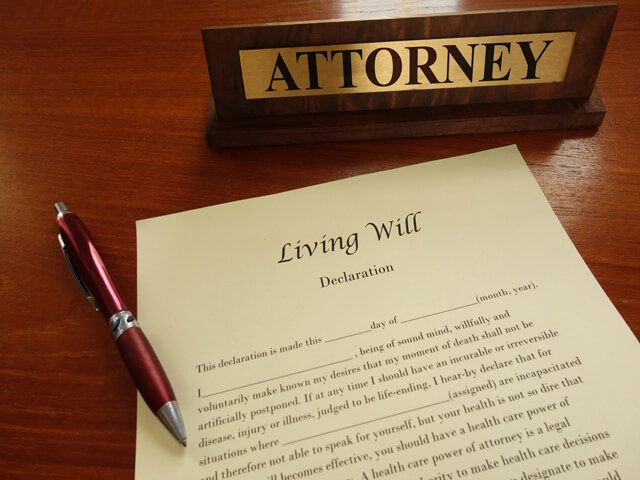“What if?” It’s a question nobody wants to ask when it comes to life and death.
However, you need to play out scenarios to protect your children and loved ones.
An estate plan protects everybody.
Life happens, and sometimes not as we planned. So, it’s important to create the best estate plan you can just in case. Once you create it, it’s important to revisit it periodically especially if your marital status changes or you move to a new state.
Estate plans are important financial documents that protect you and your family, should something happen to you. The American Bar Association noted 10 reasons wills and estates help families. Beyond protecting and caring for your family when you can’t, proper estate plans minimize expenses for your beneficiaries.
An estate plan typically includes a will, beneficiary designations, and medical directives.
“When you look at an estate plan you’re looking at who you are picking to do things for you. Who would make healthcare decisions for you or handle financial matters if you can’t,” said Kansas City estate attorney, John Sanderford III.
Estate planning after a move
That’s why you need to re-evaluate “who” will make decisions for you if you move. That person you chose may not live near you, which makes decisions more difficult in a medical situation. Proximity matters with an estate plan.
Whether you recently moved or it’s been awhile since you updated your plan, it’s important to periodically check your estate plan and make sure the person in charge is the person you still trust the most.
“Many times people just haven’t looked at their estate plan for many years. The fact that you moved may be one reason to look at it but another reason is you didn’t pay attention to it for 10-15 years,” Sanderford said. “There’s procrastination that prevents people from doing a plan in the first place and after they do a plan they procrastinate on keeping it current.”
Also, you may forget what’s in your plan over time. Remember the “what if” question. It’s important to evaluate “what if” every few years because perspectives change over time. “What if” might mean something different for you today and ten years down the road.
How to avoid probate in Missouri
Laws differ from state to state so it’s important to make sure your estate plan offers your loved ones the best protection if you move to a new state. You may have new opportunities and choices you didn’t have in other states.
You may see the biggest difference in laws regarding healthcare decisions. It’s a relatively new area of the law in the last 30 years, so rules vary between states.
Probate rules also vary from state to state. It’s a legal process that handles the assets and debts of a deceased individual.
“In some states, it’s a fairly abbreviated process, but in other states, it’s a long and expensive process,” Sanderford said.
Missouri offers a way to avoid probate for certain assets. This saves everyone time after the loss of a loved one.
Sanderford spoke with Todd Minear, of Open Road Wealth Management, about the differences with Missouri estate laws.
It’s a smart move to assign beneficiaries to your financial assets. If you lived in a state that didn’t let you name a beneficiary for many of your assets, it’s time to reconsider your options.
Missouri and Kansas both allow broad beneficiary designations, helping families avoid probate court.
Again, update these documents when you move and every few years. Life circumstances change. Perhaps you listed a parent as a beneficiary at your first job. Then you got married. Did you update your beneficiary? That’s why it’s important to check your documents periodically to make sure the right people are listed as beneficiaries.
Guardianship
If you have a family, guardianship is important. You want minor children left in capable hands. Sometimes you need to make adjustments to these designations as people age. Perhaps grandma and grandpa are no longer able to care for a teenager. Circumstances change with time so that’s why it’s important to re-evaluate your plan periodically, especially if you move.
If you move and something happens to you, do you want your children to stay with someone in state or do you want them to move? These are important questions to consider when you create and update your estate plan.
DIY estate planning
Anything is possible these days thanks to technology. There are DIY home repairs and even DIY estate planning.
“One of the things about trying to do it online is that many of those documents are not state specific so they don’t comply with requirements different states have. You have to have particular verbiage in your financial power of attorney for it to be a durable power of attorney. Those are specific from state to state. So generic documents are often not adequate to accomplish your objectives.”
Estate planning is a legal process, so it’s easy to make mistakes. Sanderford breaks down some of the more common mistakes.
Todd’s Takeaway
You work all your life, perhaps with a certified financial planner, to plan for retirement and beyond. Many parents work hard so they can leave behind valuable assets for their children. Make sure everything you work toward is protected with an updated estate plan.
How often do you update your estate plan?














